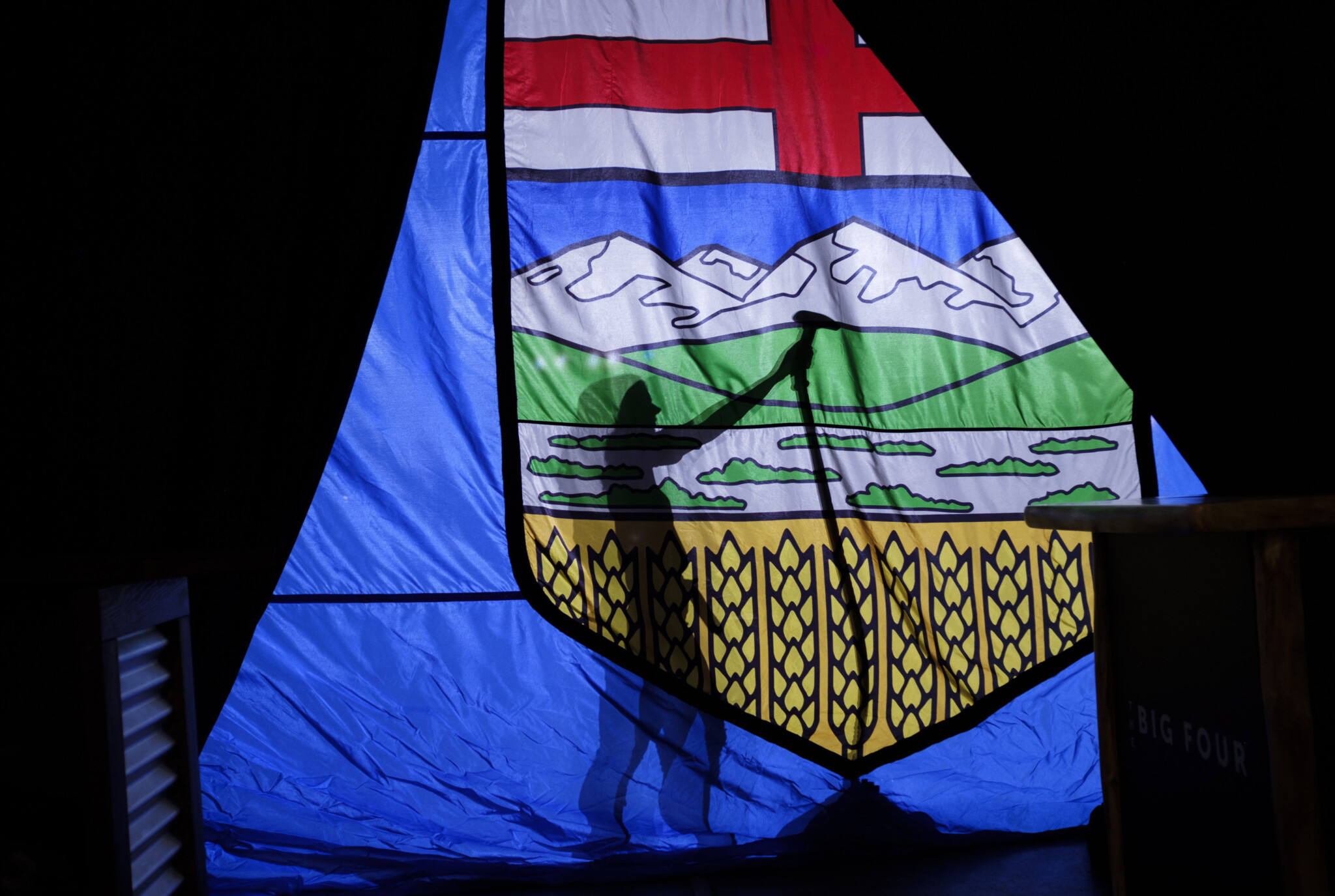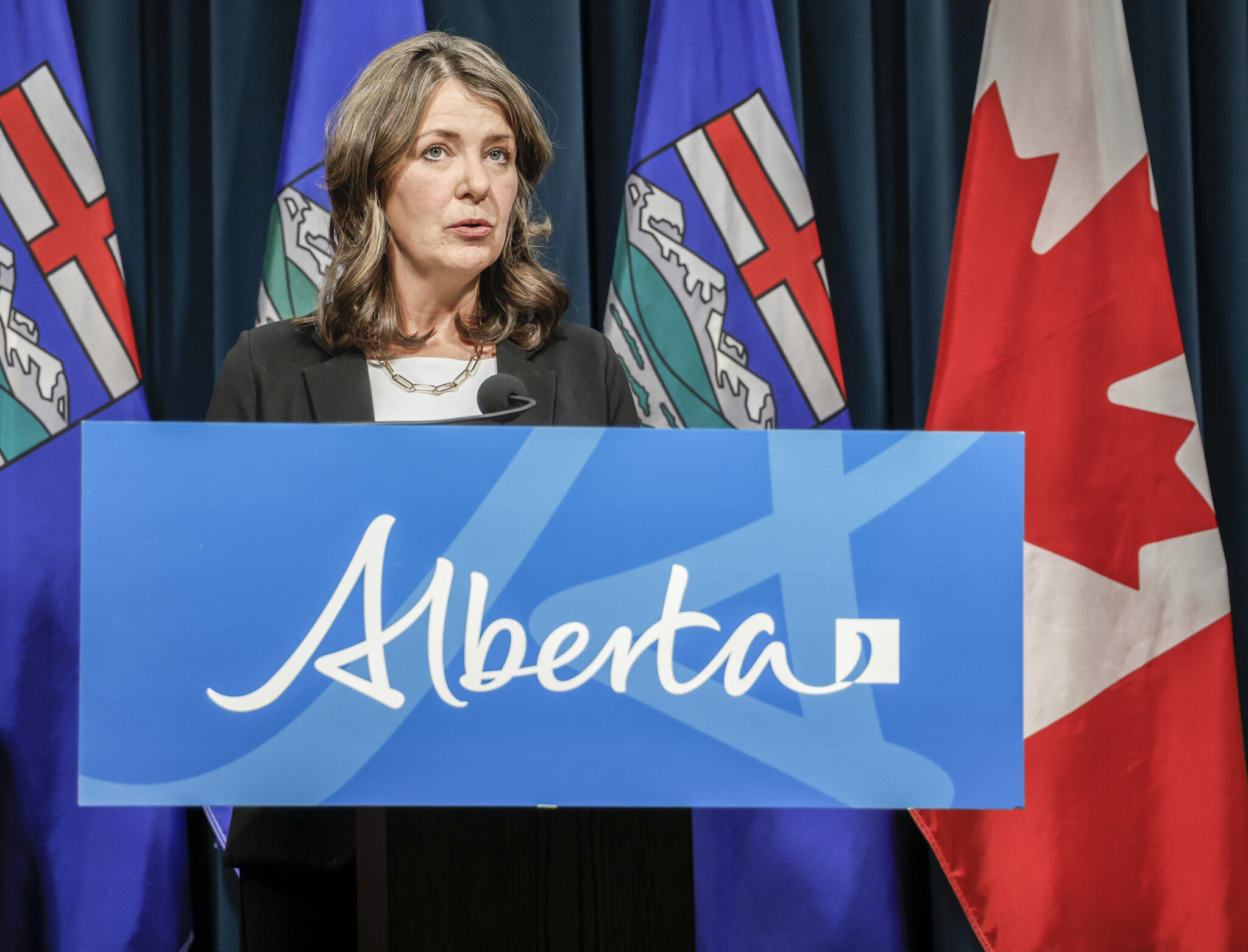Earlier this month, former Reform Party leader Preston Manning sparked controversy with a Globe and Mail op-ed warning that electing a Liberal government headed by Mark Carney would pose a serious threat to Canada’s national unity.
“Voters, particularly in central and Atlantic Canada, need to recognize that a vote for the Carney Liberals is a vote for Western secession—a vote for the breakup of Canada as we know it,” he wrote. “The next prime minister of Canada, if it remains Mark Carney, would then be identified in the history books, tragically and needlessly, as the last prime minister of a united Canada.”
Carney responded by dismissing Manning’s comments as “dramatic” and “unhelpful.”
Conservative leader Pierre Poilievre distanced himself from the fellow former leader of the official opposition, saying he disagreed with him.
“We need to unite the country. We need to bring all Canadians together in a spirit of common ground,” he explained.
But is there something more to Manning’s warning? Or is Western separation still a fringe issue?
Western alienation is real
Recent polling by the Angus Reid Institute shows 76 percent of Albertans and 75 percent of Saskatchewanians feel they have not been respected by the rest of Canada—and that 64 percent of Albertans and 69 percent of Saskatchewanians feel they have not been treated fairly by the federal government.
A key source of the alienation has been what they see as the federal Liberals’ mistreatment of the West’s natural resources sectors.
Justin Trudeau, who once mused about phasing out the oil sands, touted an environmental agenda that had deep impacts on the West’s energy sector.
While his government bought a pipeline, it also implemented a carbon tax, advanced an oil and gas emissions cap, introduced new regulations for building resource projects, and implemented an oil tanker ban.
Another factor of alienation that frustrated Westerners point to is a lack of political representation.
Western Canadians have overwhelmingly and repeatedly attempted to vote out the Liberals, only to see them re-elected twice thanks to the support elsewhere in the country.
The Conservative Party currently represents 44 of Alberta’s and Saskatchewan’s 48 seats, while the Liberals hold 48 of 51 seats in Montreal, Ottawa, and Toronto. Mark Carney’s cabinet currently has no representation from Alberta or Saskatchewan.
For many Western Canadians, up until a few months ago, a new government appeared to be on the horizon, with Poilievre on track to win a majority mandate. However, the Liberals have since climbed back to the top of the polls, and could be given a fourth-straight mandate.
Rising support for separation
Yet while alienation is quite high–and is likely to rise if the Liberals once again win–separatism has tended to have less support. In 2019, Western separatism had only 23 percent support amongst Albertans. More recent polls suggest the cause has gained ground. A March Mainstreet Research poll found that 37 percent of Albertans now support separation.
Meanwhile, a recent Angus Reid poll found support for joining the United States would more than triple among Albertans (from 10 percent to 34 percent) and would more than double among Saskatchewanians (from 18 percent to 39 percent), if the Liberals won a majority in the next election.
An Alberta lawyer, Jeffrey Rath, has already been leading a fringe delegation to Washington, D.C. to discuss Alberta becoming America’s 51st state.
There now appears to be more separatists in Alberta than in Quebec.

A campaign worker steams the wrinkles from a large Alberta flag in Calgary, Alta., Tuesday, April 16, 2019. Jeff McIntosh/The Canadian Press.
The West wants in, but can’t take “abuse” much longer
“It’s not like everybody’s running around being separatists. It’s about us being abused,” said Rick Bell, a columnist for the Calgary Herald and the Calgary Sun, told The Hub.
But Bell said, despite “incredible frustration and anger,” most Westerners aren’t hungry for separation—yet.
He said Alberta still wants to be in Canada, but Alberta does not want to be an “abused part of the family.”
“Albertans are Canadians and are Canadian patriots, but that does not give federal governments the licence to abuse Alberta,” he said.
Bell warned that patriotism among Western Canadians cannot be taken for granted.
“We’re still very much focused on getting respectful treatment within Canada. But everybody has their limits. If the next four years are like the last 10 years, Canadians are playing with fire,” he said.
Albertans aren’t going to put up with more of the same
Corey Morgan, a longtime Alberta independence activist and a columnist for the Western Standard, believes a Liberal win would push his cause into the mainstream.
However, he wouldn’t go so far as to say it would push it to the point of a successful referendum.
“Albertans have never really liked Liberals. But they would accept [them] and put up with [them]. But we’ve just had 10 years of one of the worst Liberal governments we’ve ever seen,” he explained. “It [now] looks like…we might be in for 10 more years, and Albertans aren’t going to put up with that.”
Morgan said his side wouldn’t have to win for a direct message to be delivered to Ottawa. He said the act of holding a referendum could force the feds to finally listen.
“Maybe at that point, with the turmoil and the headache, that’s when Canada would be willing to say, ‘You know what, it’s time to open up that Constitution and write up a more fair system of representation for such a large country.’ But I don’t think anything less than that is going to inspire Canadians to accept the change.”
Holding an independence referendum would be a complex legal and constitutional process. According to the Supreme Court of Canada and the federal Clarity Act, an independence referendum must ask a clear question and obtain a clear majority. Only then constitutional negotiations between the province in question and the federal government can begin.
A province cannot unilaterally secede from Canada.
Don’t be surprised if you see separatist MLAs in the legislature
Barry Cooper, a professor of political science at the University of Calgary and a supporter of both Western and Quebec separatism, believes a Liberal win could lead to separatist MLAs being elected to the Alberta legislature.
Cooper said he’s spoken to UCP MLAs who say there is appetite for major changes from the status quo within their caucus.
“There are members of the UCP caucus now who would be quite happy to entertain some serious discussion about how Alberta could improve its position in Canada, and if Laurentians refuse to budge, improve its position outside of Canada,” he claimed.
Cooper said many Westerners, himself included, feel “Laurentian politicians” only seek to oppose Western Canada.
“It’s not an ideological thing. It’s regional, it’s economic, and eventually it’s mythical. The image of the country from this province is antithetical to what it is in Laurentian, Canada, and that’s not going to go away,” he said. “We’re not alienated, we’re pissed off.”
Western separatism has never been mainstream
Still, not everyone is convinced Western separatism is anything more than a fringe issue.
Lori Williams, a professor of political science at Mount Royal University, told The Hub that she does not believe there will be strong momentum for Western separatism, even if the Liberals win.
“At the time, there’d be some anger. A lot of Conservative voters thought they were on their way to victory, and if that gets disappointed, then some people will be more inclined to think the solution is to leave Canada or join the United States. But that sentiment has never been mainstream in Alberta; never anywhere near the kind of numbers you’d see in a place like Quebec,” she said.
“I think for most Albertans, that’s just not appealing. They see themselves as Canadians. They want to be part of Canada, but a respected and an included partner in decision-making in Canada,” she added.
Williams noted that Alberta, like the rest of Canada, is also simultaneously seeing an upsurge in Canadian pride and nationalism in the face of President Trump’s tariffs and annexation remarks.
Williams, however, also said a future Liberal government would need to make changes to make Westerners feel more included, including having adequate Western representation in its cabinet and reconsidering the emissions cap on oil and gas.
Alberta Premier Danielle Smith recently put out a series of demands for the next government that she believes could help avert what she described as “an unprecedented national unity crisis.”
The demands include: repealing Bill C-69, lifting the tanker ban off the B.C. coast, eliminating the oil and gas emissions cap, ending the ban on single-use plastics, and abandoning the zero emissions vehicle mandate. Carney has said he will keep the oil and gas emissions cap and Bill C-69 in place.
When asked by The Hub in Ottawa last week if she thinks a Carney win would threaten national unity, Smith said, “We’re going to have to see what the reaction of Albertans [is].”











